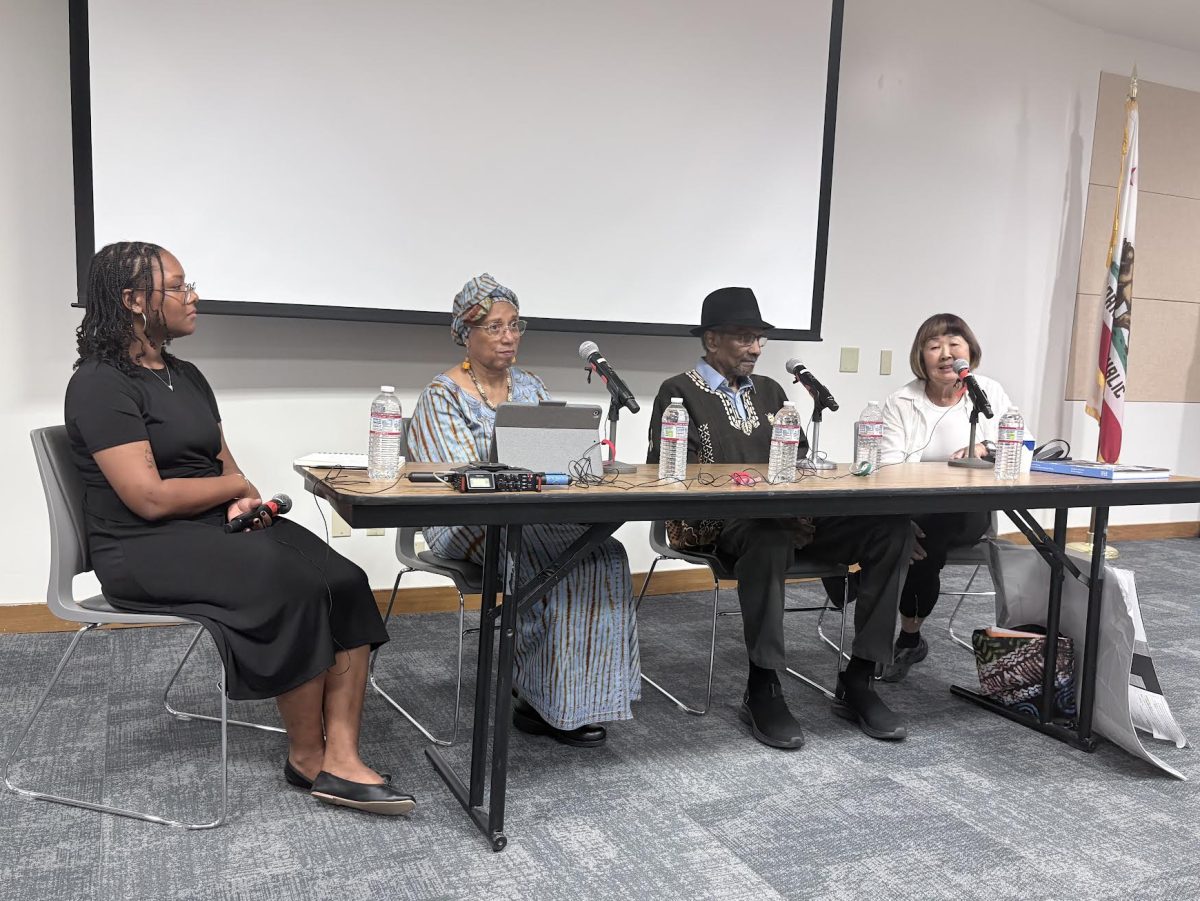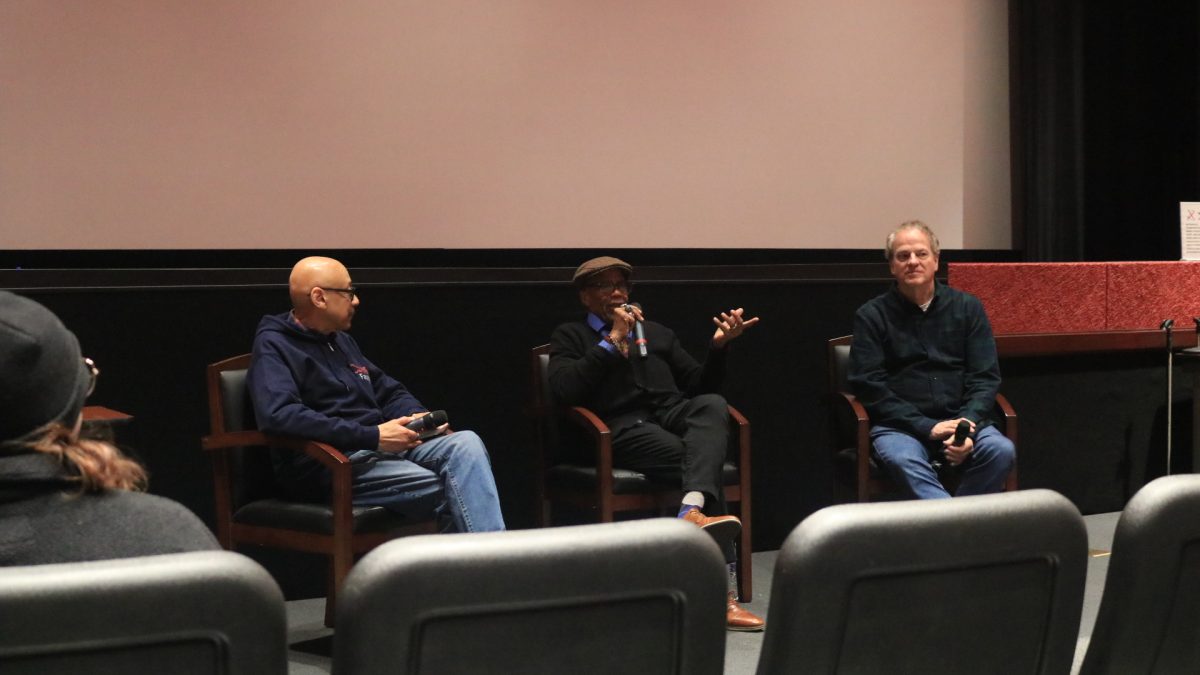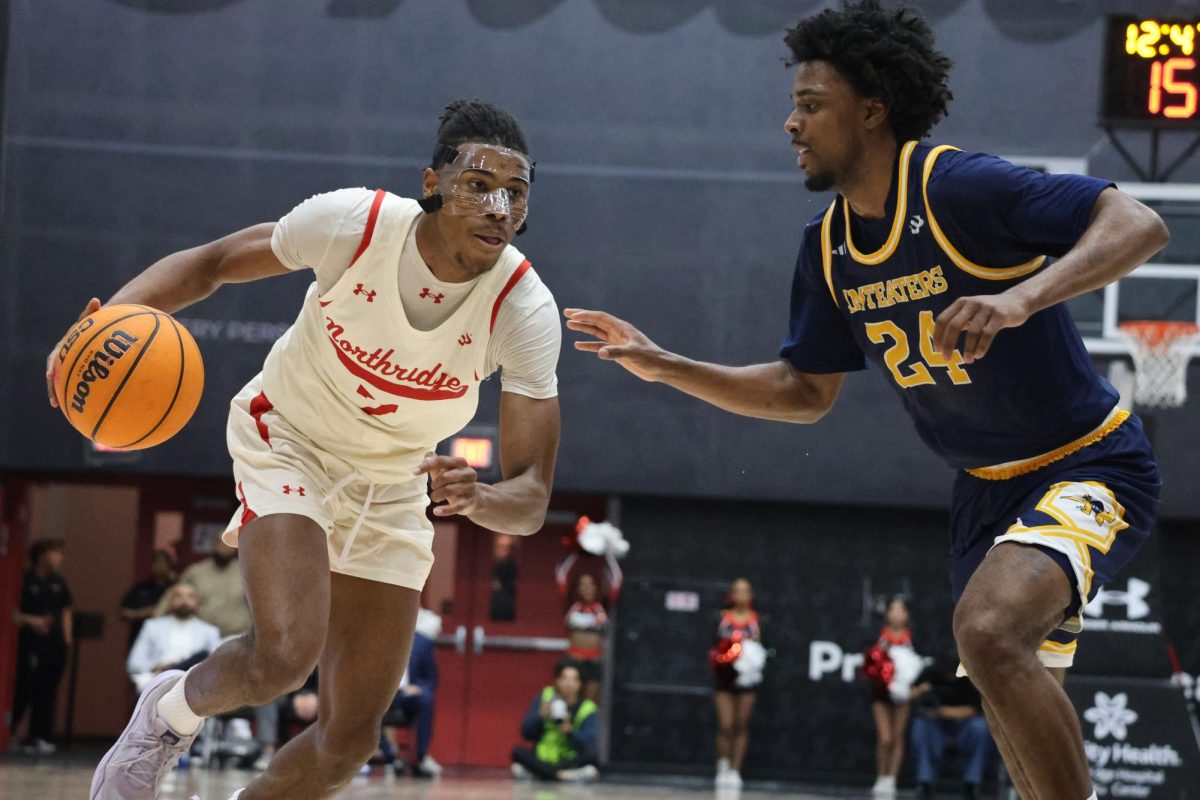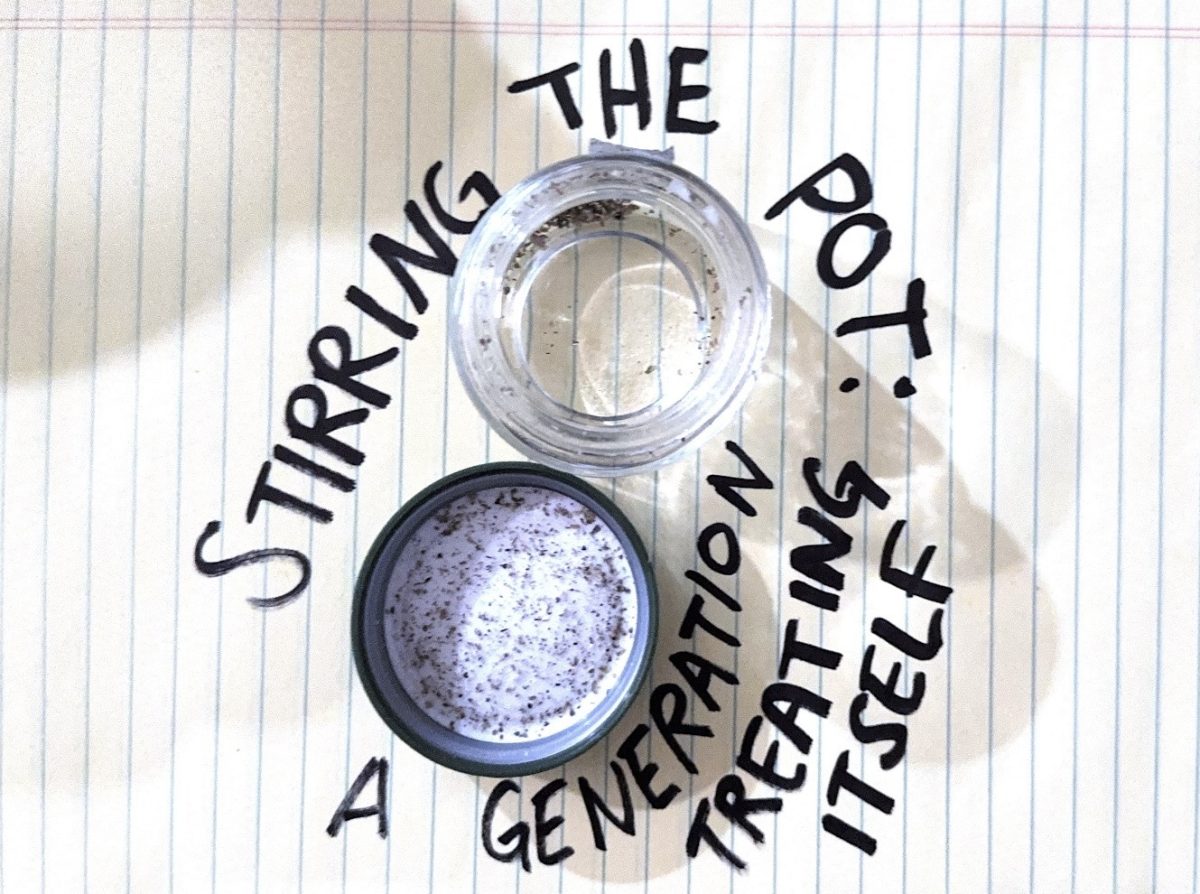Class comes to an end and a group of students spill out of the double doors like a swarm of slow zombies, eyes glued to their phones.
Their heads stay down as they shuffle through the traffic, somehow keeping a straight line as they flood out to various parts of campus. Although they may appear to be severely detached students, lost in the world of social media, it becomes more clear that their gaze is focused on school life.

“I use my phone for everything on campus,” said Chris Medel, 26-year-old criminology major. “Tests, homework, business — everything.”
It is easy to assume that students who are walking around campus with their heads down and phones in their faces use the device purely to scroll through Instagram and take Snapchats.
However, it was found that students seem to be buried in emails and homework instead.
A Verizon Foundation study conducted by TRU Insights, a youth marketing research company that is now part of the Futures Company, questioned 1,000 students in grades six through eight and found that 26 percent of the students used their smartphones for homework on a weekly basis.
The survey also found that about one out of three middle school students report using smartphones, 39 percent, and tablets, 31 percent, to do homework.
Compare these findings to higher-level education: on a college campus, there is a greater degree of learning, communication and interaction involved. While cell phone use has been controversial in college classes, most professors don’t allow students to access their cellphones during instruction time.
A Baylor University study noted that approximately 60 percent of college students admit they may be addicted to their cell phone, and some say they get nervous when it’s not in sight.
In the journal article “College Students Cell Phone Use, Beliefs, and Effects on their Learning,” by Anastasia Elder, it’s stated that in a 2010 study by Burns & Lohenry, 65 percent of students report refraining from utilizing cellphones in the classroom, yet 53 percent report using them for text purposes in courses.
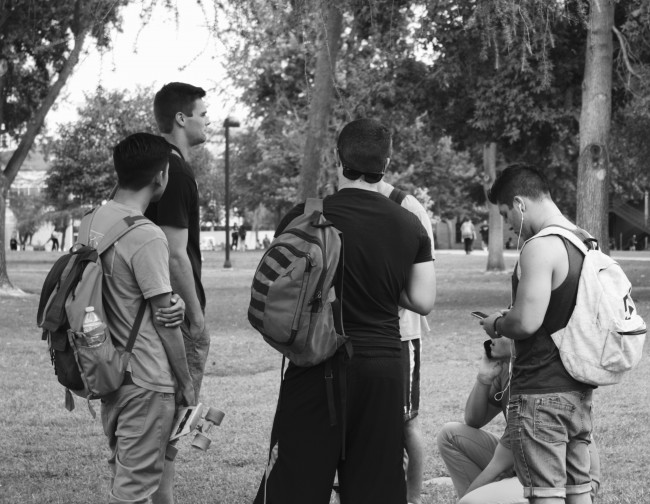
“I also use my phone for everything,” Sarah Robles, a 22-year-old criminology major said as she sent a text on her phone.
In recent years, cell phones have become one of the fastest growing communication technologies, according to a 2006 article by Scott Campbell. While they can be addictive and used for mundane purposes, it is important to recognize the opportunity cellphones can provide.
The next time you encounter a cellphone zombie on campus, consider that, while it’s likely they are engaged in the latest viral video on Facebook, they might also be using their phone to benefit their college experience.

